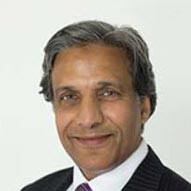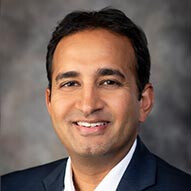Pediatric heart murmur
Our pediatric cardiologists specialize in treating children who have heart murmurs, an extra sound during a heartbeat. At Children’s Health℠, our heart team has years of experience and highly specialized training in heart care for children of all ages.
We can care for heart murmurs caused by any heart condition, from the common to the complex. We offer high-quality, innovative care to help children enjoy a healthy, active childhood with every beat of their heart.
What is a pediatric heart murmur?
A pediatric heart murmur is an extra sound in your child’s heartbeat, caused by turbulent blood flow through the heart. A normal heartbeat makes two sounds, like "lub-dup," as the heart valves open and close. A heart murmur sounds like whooshing or swishing during a heartbeat.
Heart murmurs are very common in children, and most heart murmurs are normal and don’t cause any symptoms. In rare cases, a heart murmur can be a sign of a structural problem in the heart. Your child’s doctor can evaluate the murmur to decide if your child needs more testing to determine the cause.
What are the different types of pediatric heart murmurs?
Heart murmurs make a variety of sounds, and in general, there are two types.
Innocent heart murmurs are harmless, don’t cause symptoms and don’t need any treatment. This type is very common – more than two-thirds of children have one at some point during childhood. Your child can lead a healthy, active life, and the heart murmur will likely go away by adulthood.
Abnormal heart murmurs typically result from a heart condition that your child is born with (congenital heart disease), which affects the heart’s structure.
Sometimes, an abnormal heart murmur can develop after an infection or other condition. This type of murmur is called acquired. Although an abnormal heart murmur is usually not life-threatening, your child needs evaluation and possibly treatment for the cause.
What are the signs and symptoms of a pediatric heart murmur?
Poor feeding, eating, growth or weight gain
Rapid breathing or shortness of breath
Extreme fatigue
Fainting or dizziness
Chest pain
Bluish skin, especially on the lips and fingertips
Swelling in the neck, belly (abdomen), lower legs, ankles or feet
These signs and symptoms can occur in children who have abnormal heart murmurs. Children who have innocent heart murmurs usually experience no symptoms.
How is a pediatric heart murmur diagnosed?
At Children’s Health, our pediatric cardiologists begin with a thorough evaluation. We do a physical exam and ask you about your child’s medical history.
This includes:
Careful examination of their heart using a stethoscope to listen closely
Recent signs and symptoms
Family medical history, especially if other family members have had a heart murmur or other heart condition
Based on the physical exam and history, our cardiologists can sometimes determine that the murmur is an innocent heart murmur without any further tests.
If additional testing is needed, your doctor my order:
Electrocardiogram (EKG/ECG) - This painless, noninvasive test records the electrical activity of your child’s heart. An EKG can show signs of problems with the heart‘s rhythm (arrhythmia) or structure.
Echocardiogram (echo) - This test is an ultrasound of your child’s heart to look at its structure as it moves. Also painless and noninvasive, an echo can show problems such as abnormal heart valves or holes in the heart.
Chest X-ray - X-ray imaging of your child’s heart, lungs and blood vessels can show signs of other conditions that may be causing the heart murmur.
What causes a pediatric heart murmur?
If your child has an innocent heart murmur, their heart is normal.
Abnormal heart murmurs in children usually result from a congenital heart disease, such as:
Atrial septal defect - A hole in the wall between the heart’s two upper chambers
Ventricular septal defect - A hole in the wall between the heart’s two lower chambers
Heart valve diseases - Occurs when one or more of the heart's four valves have a problem
Cardiac shunts - Abnormal blood flow through the heart
Endocarditis - A infection in heart valves
Anemia - Low red blood cell count
Hyperthyroidism - Overactive thyroid gland
How is a pediatric heart murmur treated?
Our pediatric cardiologists decide on treatment for a pediatric heart murmur based on what its type and cause.
Innocent heart murmurs don’t need any treatment because the heart is normal and the murmur usually goes away on its own.
For abnormal heart murmurs, we treat the underlying cause.
Regular monitoring - Your child comes in for checkups and testing to see if the murmur is causing any symptoms.
Medication - We can prescribe a variety of medications to address the specific causes of the murmur and help your child’s heart work better.
Cardiac catheterization - Our skilled pediatric interventional cardiologists perform minimally invasive techniques to repair structural heart diseases. These procedures use a catheter (long, narrow tube) with special instruments inserted through a blood vessel to access and treat your child’s heart.
Open-heart surgery or cardiothoracic surgery - Our experienced heart surgeons perform open-heart surgery to repair structural heart diseases. These traditional surgical procedures use a longer incision to access and treat the condition.
Pediatric heart murmur doctors and providers
Our pediatric specialists can provide comprehensive treatment and long-term care to help your child grow up healthy and strong.
 Colin Kane, MDPediatric Cardiologist
Colin Kane, MDPediatric Cardiologist Jessica Moreland, MDCardiac Intensivist
Jessica Moreland, MDCardiac Intensivist Thomas Zellers, MDPediatric Cardiologist
Thomas Zellers, MDPediatric Cardiologist M. Iqbal Ahmed, MDPediatric Anesthesiologist
M. Iqbal Ahmed, MDPediatric Anesthesiologist Sravani Avula, MDPediatric Cardiologist
Sravani Avula, MDPediatric Cardiologist Nathanya Baez Hernandez, MDPediatric Cardiologist
Nathanya Baez Hernandez, MDPediatric Cardiologist Maria Bano, MDPediatric Cardiologist
Maria Bano, MDPediatric Cardiologist Shannon Blalock, MDPediatric Cardiologist
Shannon Blalock, MDPediatric Cardiologist Beth Brickner, MDPediatric Cardiologist
Beth Brickner, MDPediatric Cardiologist Ryan Butts, MDPediatric Cardiologist
Ryan Butts, MDPediatric Cardiologist Melinda Cory, MDPediatric Cardiologist
Melinda Cory, MDPediatric Cardiologist Ryan Davies, MDPediatric Cardiothoracic Surgeon
Ryan Davies, MDPediatric Cardiothoracic Surgeon Samuel Davila, MDCritical Care Specialist
Samuel Davila, MDCritical Care Specialist Abhay Divekar, MDPediatric Cardiologist
Abhay Divekar, MDPediatric Cardiologist Randi Durden, MDPediatric Cardiologist
Randi Durden, MDPediatric Cardiologist Chioma Duru, MDPediatric Cardiologist
Chioma Duru, MDPediatric Cardiologist Munes Fares, MDPediatric Cardiologist
Munes Fares, MDPediatric Cardiologist Mansi Gaitonde, MDPediatric Cardiologist
Mansi Gaitonde, MDPediatric Cardiologist Erin Gordon, DOCritical Care Specialist
Erin Gordon, DOCritical Care Specialist Michael Green, MDCardiac Intensivist
Michael Green, MDCardiac Intensivist M. Tarique Hussain, MDPediatric Cardiologist
M. Tarique Hussain, MDPediatric Cardiologist Catherine Ikemba, MDPediatric Cardiologist
Catherine Ikemba, MDPediatric Cardiologist Jenna Keelan, MDPediatric Cardiologist
Jenna Keelan, MDPediatric Cardiologist Tracy Laird, MDPediatric Cardiologist
Tracy Laird, MDPediatric Cardiologist W. Penn Laird, MDPediatric Cardiologist
W. Penn Laird, MDPediatric Cardiologist Matthew Lemler, MDPediatric Cardiologist
Matthew Lemler, MDPediatric Cardiologist Lynn Mahony, MDPediatric Cardiologist
Lynn Mahony, MDPediatric Cardiologist Sadia Malik, MDPediatric Cardiologist
Sadia Malik, MDPediatric Cardiologist Hoang Nguyen, MDPediatric Cardiologist
Hoang Nguyen, MDPediatric Cardiologist Claudio Ramaciotti, MDPediatric Cardiologist
Claudio Ramaciotti, MDPediatric Cardiologist Kavita Sharma, MDPediatric Cardiologist
Kavita Sharma, MDPediatric Cardiologist Sana Ullah, MDPediatric Anesthesiologist
Sana Ullah, MDPediatric Anesthesiologist Suren Veeram Reddy, MDPediatric Cardiologist
Suren Veeram Reddy, MDPediatric Cardiologist Amit Verma, MDPediatric Cardiologist
Amit Verma, MDPediatric Cardiologist Joshua Wolovits, MDCritical Care Specialist
Joshua Wolovits, MDCritical Care Specialist Maria Yates, MDPediatric Cardiologist
Maria Yates, MDPediatric Cardiologist Priscilla Yu, MDCardiac Intensivist
Priscilla Yu, MDCardiac Intensivist Luis Zabala, MDPediatric Anesthesiologist
Luis Zabala, MDPediatric Anesthesiologist Corinne Anton, PhD, ABPPPediatric Psychologist - Cardiology
Corinne Anton, PhD, ABPPPediatric Psychologist - Cardiology Kelli Triplett, PhDPediatric Psychologist - Transplant
Kelli Triplett, PhDPediatric Psychologist - Transplant Mahreen Ahmad, PA-CPhysician Assistant - Cardiac Critical Care
Mahreen Ahmad, PA-CPhysician Assistant - Cardiac Critical Care Caitlin Clyde, PA-CPhysician Assistant - Cardiology
Caitlin Clyde, PA-CPhysician Assistant - Cardiology Lindsey Duke, PA-CPhysician Assistant - Pre-Surgical Assessment
Lindsey Duke, PA-CPhysician Assistant - Pre-Surgical Assessment Kaitlin Hukill, PA-CPhysician Assistant - Cardiac Critical Care
Kaitlin Hukill, PA-CPhysician Assistant - Cardiac Critical Care- APAnju Patel, PA-CPhysician Assistant - Cardiothoracic Surgery
 Ian Schneider, PA-CPhysician Assistant - Cardiac Critical Care
Ian Schneider, PA-CPhysician Assistant - Cardiac Critical Care Amanda Williamson, PA-CPhysician Assistant - Cardiology
Amanda Williamson, PA-CPhysician Assistant - Cardiology Abby Anderson, APRN, PNP-ACNurse Practitioner - Cardiac Critical Care
Abby Anderson, APRN, PNP-ACNurse Practitioner - Cardiac Critical Care Alexandra Birely, APRN, CNSClinical Nurse Specialist - Cardiology
Alexandra Birely, APRN, CNSClinical Nurse Specialist - Cardiology Haley Botner, APRN, PNP-ACNurse Practitioner - Cardiac Critical Care
Haley Botner, APRN, PNP-ACNurse Practitioner - Cardiac Critical Care Rebekah Chesney, APRN, PNP-AC/PCNurse Practitioner - Cardiac Critical Care
Rebekah Chesney, APRN, PNP-AC/PCNurse Practitioner - Cardiac Critical Care- CGCrystal Griffin, APRN, PNP-AC/PCNurse Practitioner - Cardiology
- AHAlaina Hale, APRN, PNP-AC/PCNurse Practitioner - Cardiac Critical Care
 Joanne Jacobs, APRN, PNP-PCNurse Practitioner - Cardiothoracic Surgery
Joanne Jacobs, APRN, PNP-PCNurse Practitioner - Cardiothoracic Surgery Anna Jones, APRN, PNP-AC/PCNurse Practitioner - Cardiac Critical Care
Anna Jones, APRN, PNP-AC/PCNurse Practitioner - Cardiac Critical Care Sara Klueber, APRN, PNP-AC/PCNurse Practitioner - Cardiology
Sara Klueber, APRN, PNP-AC/PCNurse Practitioner - Cardiology Callie Lenfest, APRN, PNP-AC/PCNurse Practitioner - Cardiology
Callie Lenfest, APRN, PNP-AC/PCNurse Practitioner - Cardiology Leslie Lewis, APRN, PNP-ACNurse Practitioner - Cardiothoracic Surgery
Leslie Lewis, APRN, PNP-ACNurse Practitioner - Cardiothoracic Surgery Joy Macaluso, APRN, PNP-PCNurse Practitioner - Cardiothoracic Surgery
Joy Macaluso, APRN, PNP-PCNurse Practitioner - Cardiothoracic Surgery Kimberly Moore, APRN, PNP-AC/PCNurse Practitioner - Cardiac Critical Care
Kimberly Moore, APRN, PNP-AC/PCNurse Practitioner - Cardiac Critical Care Taylor Morse, APRN, PNP-ACNurse Practitioner - Cardiac Critical Care
Taylor Morse, APRN, PNP-ACNurse Practitioner - Cardiac Critical Care Mellissa Myers, APRN, FNPNurse Practitioner - Cardiothoracic Surgery
Mellissa Myers, APRN, FNPNurse Practitioner - Cardiothoracic Surgery Joscyln Patrick, APRN, PNP-AC/PCNurse Practitioner - Cardiac Critical Care
Joscyln Patrick, APRN, PNP-AC/PCNurse Practitioner - Cardiac Critical Care Silvy Santhosh, APRN, PNP-AC/PCNurse Practitioner - Cardiology
Silvy Santhosh, APRN, PNP-AC/PCNurse Practitioner - Cardiology Jennifer Schafer, APRN, PNP-ACNurse Practitioner - Cardiac Critical Care
Jennifer Schafer, APRN, PNP-ACNurse Practitioner - Cardiac Critical Care Nelia Soares, APRN, PNP-AC/PCNurse Practitioner - Pediatric Transplant Medicine
Nelia Soares, APRN, PNP-AC/PCNurse Practitioner - Pediatric Transplant Medicine Jodie Thomason, APRN, CNSClinical Nurse Specialist- Pediatric Transplant Medicine
Jodie Thomason, APRN, CNSClinical Nurse Specialist- Pediatric Transplant Medicine Holly Tomlin, APRN, PNP-PCNurse Practitioner - Cardiology
Holly Tomlin, APRN, PNP-PCNurse Practitioner - Cardiology Andrea Torzone, APRN, PNP-AC, PCNSNurse Practitioner - Cardiac Critical Care
Andrea Torzone, APRN, PNP-AC, PCNSNurse Practitioner - Cardiac Critical Care Sheradon Waits, APRN, PNP-AC/PCNurse Practitioner - Cardiology
Sheradon Waits, APRN, PNP-AC/PCNurse Practitioner - Cardiology Amy Wetzel, APRN, PNP-AC/PCNurse Practitioner - Cardiology
Amy Wetzel, APRN, PNP-AC/PCNurse Practitioner - Cardiology Jillian Yarusso, APRN, PNP-AC/PCNurse Practitioner - Cardiology
Jillian Yarusso, APRN, PNP-AC/PCNurse Practitioner - Cardiology Alicia Yoakum, APRN, PNP-AC/PCNurse Practitioner - Cardiac Critical Care
Alicia Yoakum, APRN, PNP-AC/PCNurse Practitioner - Cardiac Critical Care Alan Sing, MDPediatric Cardiologist
Alan Sing, MDPediatric Cardiologist Ronald Gorney, PA-CPhysician Assistant - Cardiothoracic Surgery
Ronald Gorney, PA-CPhysician Assistant - Cardiothoracic Surgery
 Betsy Beall, MS, CCLSChild Life Specialist
Betsy Beall, MS, CCLSChild Life Specialist Caroline Brown, MS, CCLSChild Life Specialist
Caroline Brown, MS, CCLSChild Life Specialist Cheryl Butler, RN, BSN, CPNProgram Coordinator
Cheryl Butler, RN, BSN, CPNProgram Coordinator Ashley Hanson, CPNPNurse Practitioner
Ashley Hanson, CPNPNurse Practitioner Brittney Harris-Dixon, MA, CCC-SLP, NTMTCSpeech Language Pathologist
Brittney Harris-Dixon, MA, CCC-SLP, NTMTCSpeech Language Pathologist Stephanie Mikus, MA, MT-BCMusic Therapist
Stephanie Mikus, MA, MT-BCMusic Therapist Stefanie Rogers, MOT, OTROccupational Therapist
Stefanie Rogers, MOT, OTROccupational Therapist